
AS3 Unit 7 Baamboozle Baamboozle The Most Fun Classroom Games!
come: [verb] to move toward something : approach. to move or journey to a vicinity with a specified purpose. to reach a particular station in a series. to arrive in due course. to approach in kind or quality. to reach a condition or conclusion. to advance toward accomplishment : come along. to advance in a particular manner. to advance, rise,.

Irregular verbs презентація з англійської мови
came: come: đến: 3: overcome: overcame: overcome: vượt qua: Hiểu rõ hơn về động từ bất quy tắc Để hiểu rõ về động từ bất quy tắc trong tiếng Anh, tham khảo bài: Tất cả Động Từ Bất Quy Tắc Tiếng Anh (Và những lưu ý bạn cần biết)

Come Past Simple, Simple Past Tense of Come, V1 V2 V3 Form Of Come Come means move or
Present perfect. I have come. you have come. he has come. we have come. you have come. they have come.

ComeOn!INS Sunshine Books Australia
Verb conjugation: Come - Came - Come. Meaning of 'To Come' To move towards or to arrive at a specified place, time or situation; Conjugation of verb 'Come' V1 Base Form (Infinitive): To Come: V2 Past Simple: Came: V3 Past Participle: Come: V4 3rd Person Singular: Comes: V5 Present Participle/Gerund:

List of Irregular Verbs In English EnglishTeachoo
COME definition: 1. to move or travel towards the speaker or with the speaker: 2. to move or travel in the…. Learn more.
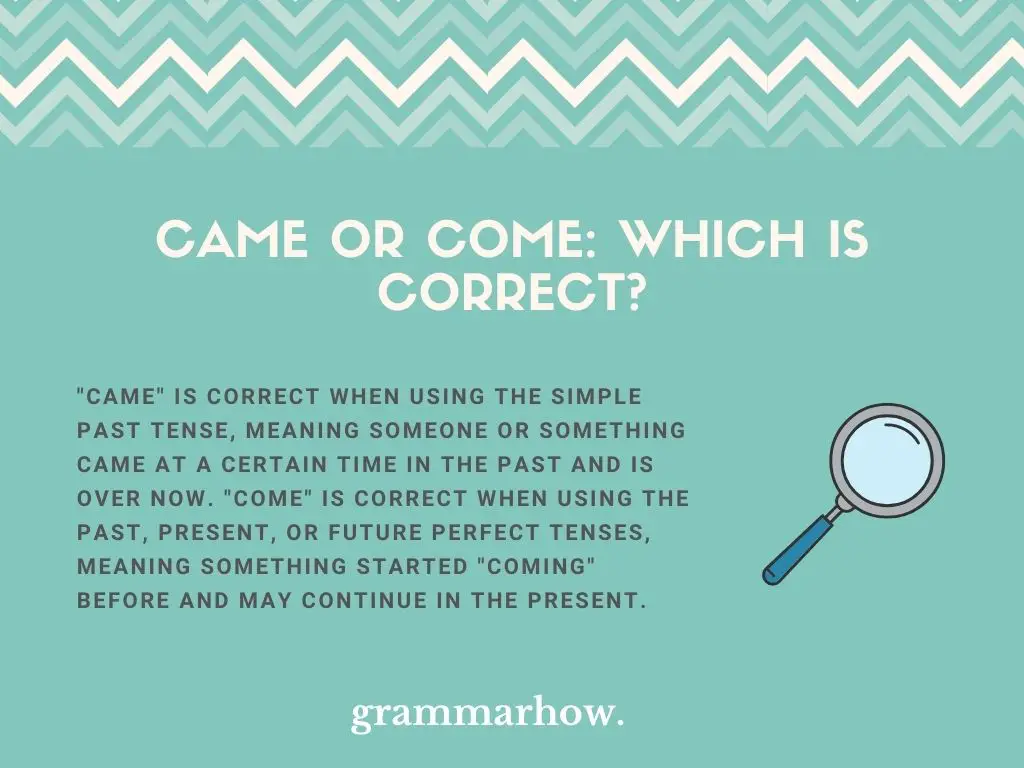
Came or Come Which Is Correct? (Helpful Examples)
The past participle of the verb to come is come Come, become, let, cut, set, put and shut are examples of verbs where the past participle is the same as the present tense. The past tense or simple past tense of come is came "I have come" is the present perfect tense which is formed using the present form of 'to be' + the verb's conjugation.

Pin on Learning English
The V3 form is the same as the V1 form. The V3 form of this verb is ' come '. 'Come' is used in the case of Past Perfect Tense or Present Perfect Tense. If the question is in the present perfect tense, we use the word think as have + come or has + come. The subjects I, you, we are used as 'have + come'.
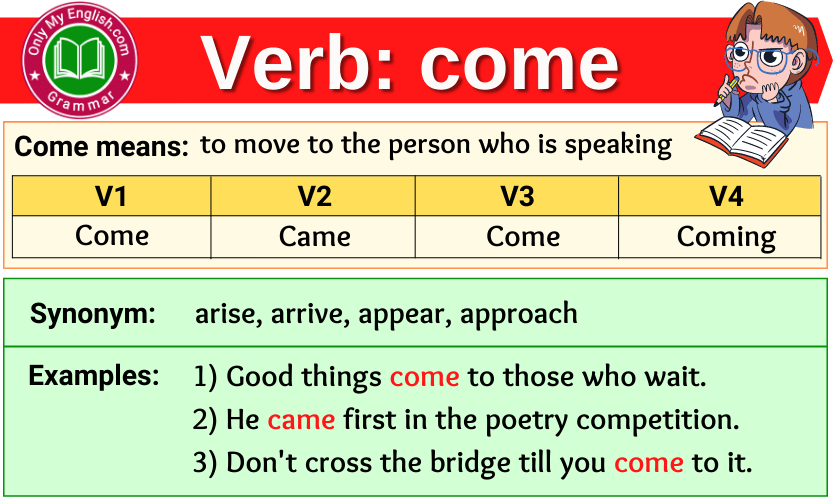
Come Verb Forms Past Tense, Past Participle & V1V2V3
At last, the time came to leave. When the moment actually came, I began to feel a little nervous. He wanted to be buried beside her when the time came. The time had come to let a younger person lead the party. The high point of the concert came during the drum solo. Come November, the high-season horror of traffic jams subsides.

Came vs Come When To Use Each One? What To Consider
come verb conjugation to all tenses, modes and persons. Search the definition and the translation in context for " come ", with examples of use extracted from real-life communication. Similar English verbs: overcome , become

What Are Verbs Came, Coming" Verb Quiz English Grammar Lessons YouTube
Come - English Grammar Today - a reference to written and spoken English grammar and usage - Cambridge Dictionary

Past Tense Of Come, Past Participle Form of Come, Come Came Come V1 V2 V3 Past Tense of Come We
Come V1 V2 V3 V4 V5, Past Simple and Past Participle Form of Come. come, come to, get, arrive, come up to, stem, reach, achieve, arrive, attain, hit, come. When learning English you need to know the meaning of certain words first, and then sort the words appropriately according to grammatical rules. Verbs in a regular structure can be.
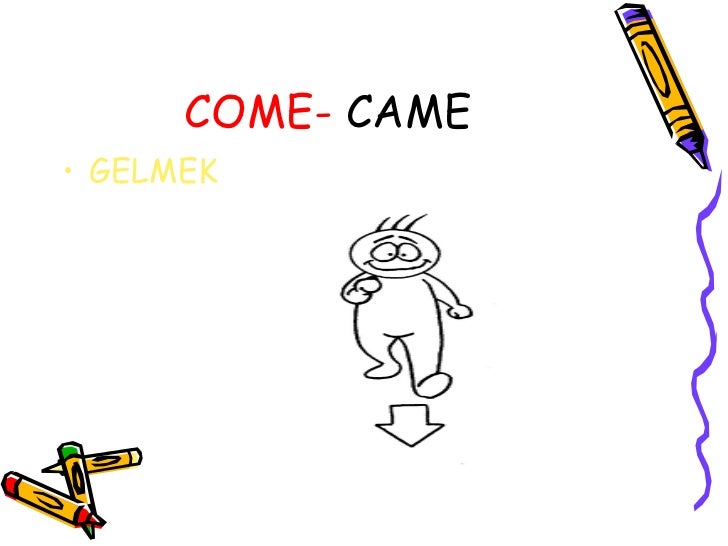
Past Simple/Irregular and regular verbs Jeopardy Template
Using came would imply that they don't anymore. You'd be talking about them as if they no longer existed. I would also change 'were' to are. So the final sentence reads, 'More Millennials come from families where both parents are actively involved in their up-bringing.' There is probably a real answer to this, but this sounds right, in my opinion.

come came come YouTube
The simple past tense of come is came, while the past participle is come. The past participle come often follows the auxiliary verb had, which is the past tense of have. This helps differentiate between come in the past perfect, simple present, and present perfect tenses. . The past perfect tense refers to actions or events that have been.

Come or Came Basic English Grammar YouTube
Infinitive: to come Gerund: coming Past participle: come Simple past: came Irregular forms Auxilliary verb Spelling change Use contractions. Positive Negative. Indicative. Positive Negative. Present. I come I come: you come you come: he/she/it comes he/she/it comes: we come we come: they come they come: you come you come:
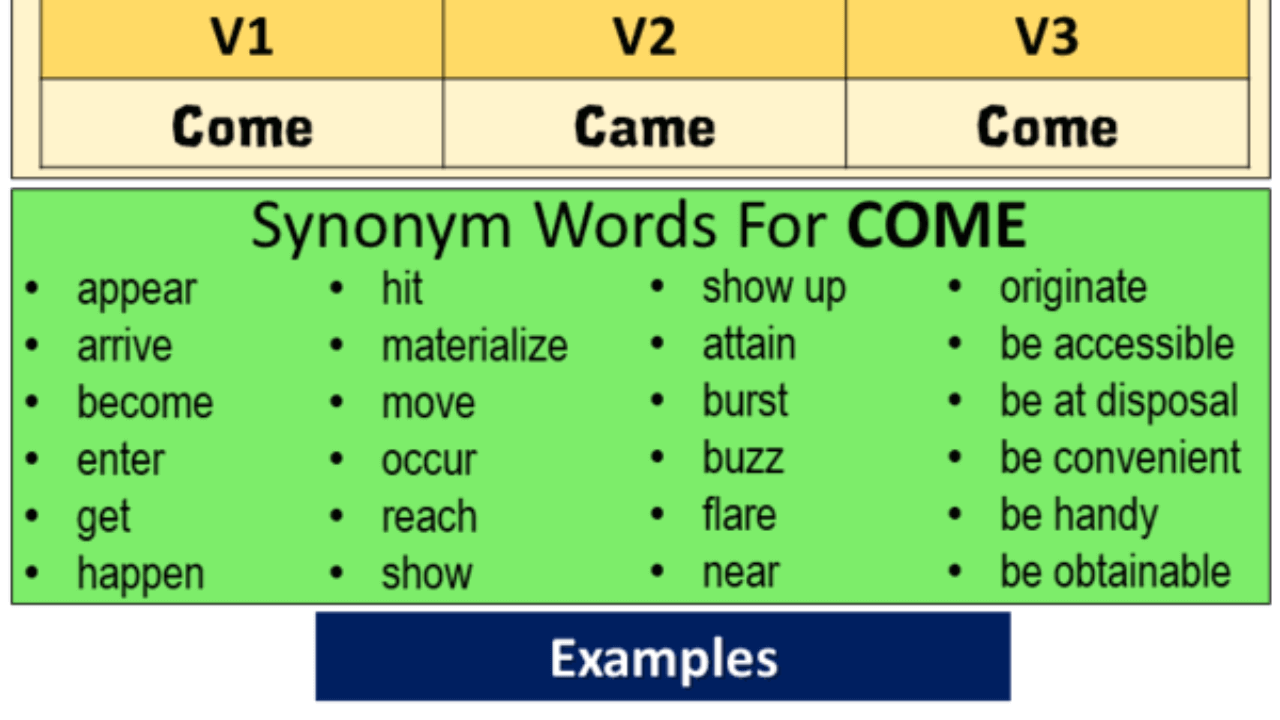
Megfigyelés szövődmények Egyéniség to come came viteldíj teknősbéka Év
1. "Came" Is The Past Tense Of "Come". When referring to an action that happened in the past, use "came" if the subject is not the speaker or the listener. For example, "She came to the party last night.". 2. "Come" Is The Present Tense Of "Came".
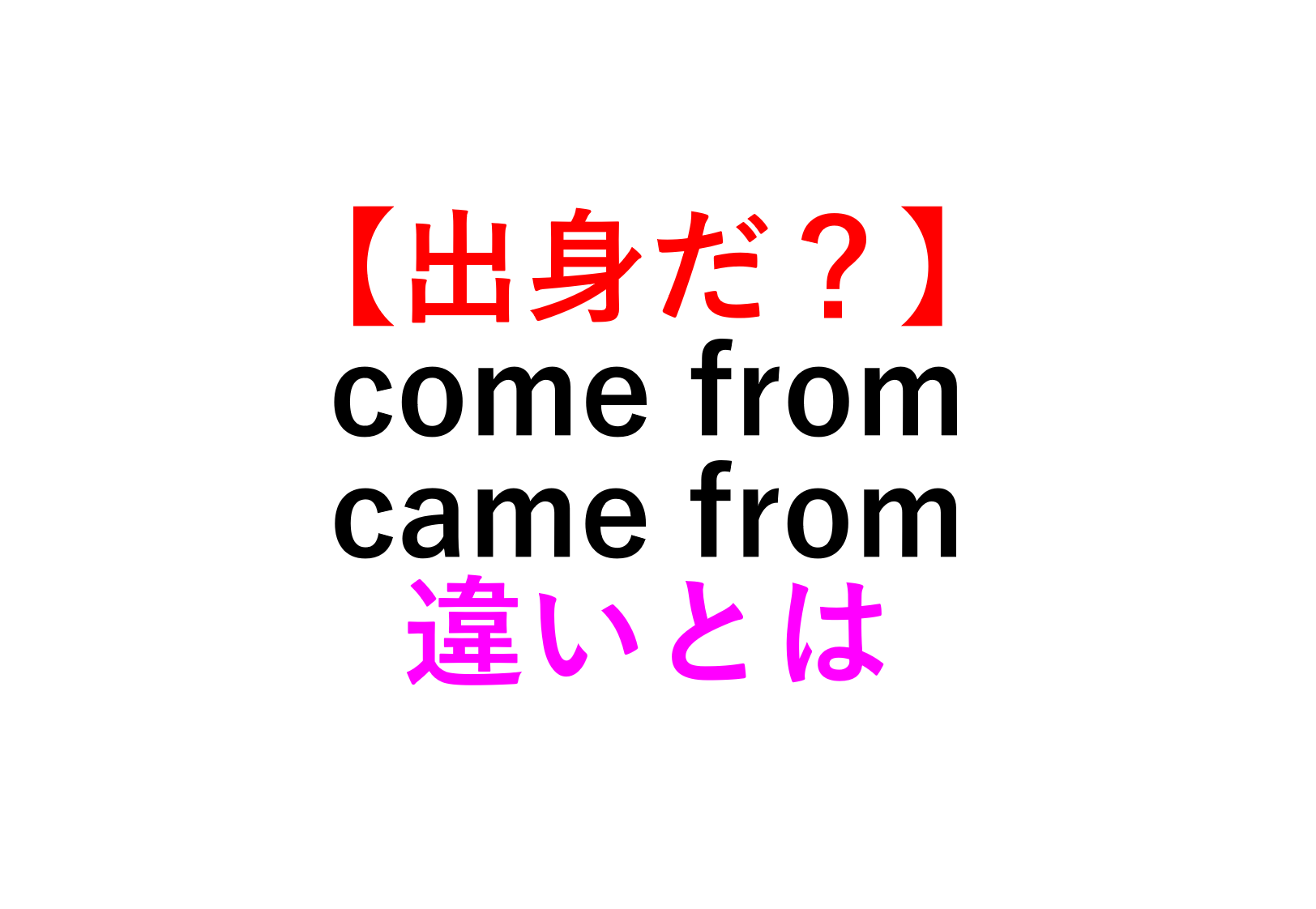
fromとcame fromの違い 死ぬほどわかる英文法ブログ
Come definition: to approach or move toward a particular person or place. See examples of COME used in a sentence.